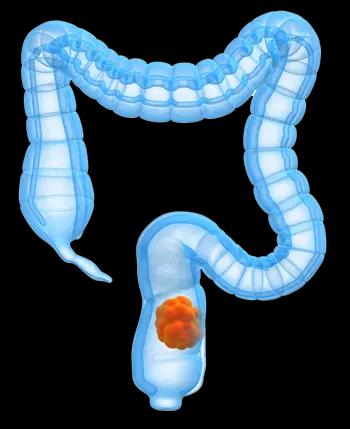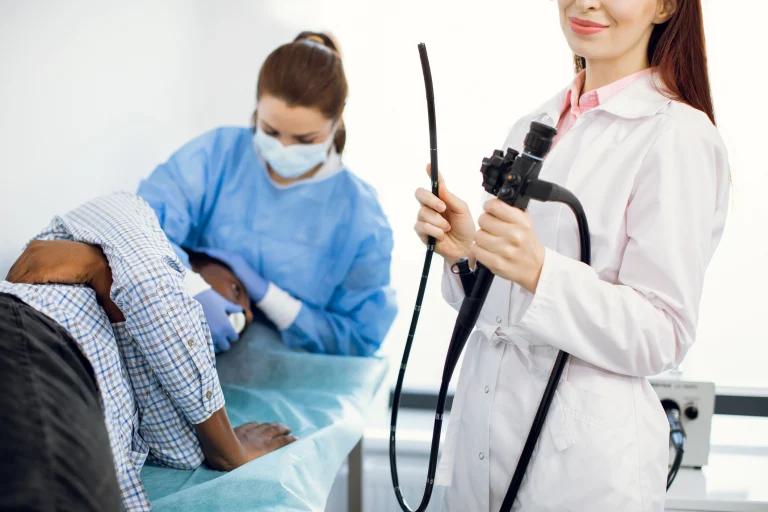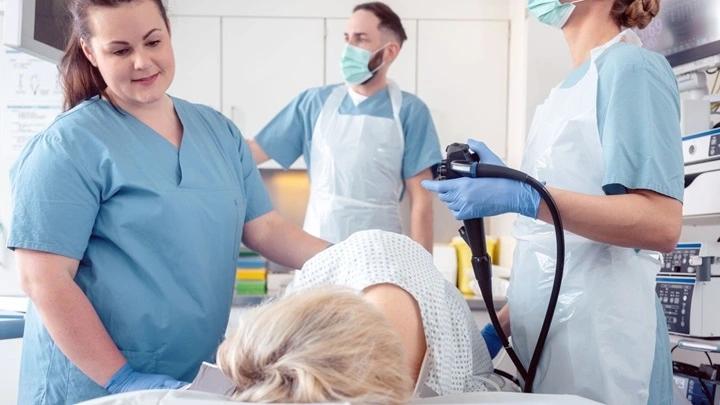
Colorectal cancer is a significant public health concern, with thousands of new cases diagnosed each year. While a colonoscopy remains the gold standard for detecting and preventing this disease, many individuals are hesitant to undergo this invasive procedure due to uncomfortable side effects and the need for sedation. Fortunately, there are alternative screening options available that can help identify the early signs of colorectal cancer without the need for a colonoscopy. In this article, we’ll explore the various non-invasive testing methods, their benefits, and limitations, to empower you to make an informed decision about your colorectal cancer screening.
Understanding colorectal cancer
Colorectal cancer, also known as colon cancer or rectal cancer, is a type of cancer that originates in the large intestine (colon) or the rectum. It typically develops from precancerous growths called polyps, which can slowly turn into cancerous tumours over time. Early detection is crucial, as colorectal cancer is highly treatable when caught early, but can become more challenging to manage as it progresses.
Key statistics on colorectal cancer
- Colorectal cancer is the third most common cancer in the United States, with an estimated 149,500 new cases expected in 2023
- It is the second leading cause of cancer-related deaths in the United States, with an estimated 52,550 deaths expected in 2023
- The average lifetime risk of developing colorectal cancer is about 1 in 23 (4.3%) for men and 1 in 25 (4%) for women
Screening options beyond colonoscopy
While a colonoscopy is considered the gold standard for colorectal cancer screening, several alternative testing methods can be used to detect the early signs of the disease. These non-invasive options offer various benefits, including convenience, reduced preparation requirements, and the ability to be performed at home.
Blood tests
Blood-based tests, such as the Epi proColon and Shield tests, are designed to detect specific DNA changes or proteins associated with colorectal cancer. These tests involve a simple blood draw and can be performed in a healthcare setting. They do not require any bowel preparation or dietary restrictions, making them a more convenient option for some individuals.
Key considerations for blood-based tests:
- They can detect the presence of colorectal cancer but may miss some precancerous polyps or early-stage cancers
- If the test results are abnormal, a follow-up colonoscopy will still be necessary to investigate the findings further
- Insurance coverage and out-of-pocket costs may vary for these tests, so it’s important to check with your healthcare provider and insurance provider
Stool tests
Stool-based tests, such as the faecal immunochemical test (FIT) and the multitargeted stool DNA test (MT-sDNA or Cologuard), analyse your stool sample for signs of colorectal cancer or precancerous polyps. These tests can be completed at home, with the sample collected and sent to a laboratory for analysis.
Key considerations for stool tests:
- FIT and MT-sDNA tests are less invasive than a colonoscopy and can be done more frequently (annually or every 3 years, respectively)
- They can detect the presence of blood or abnormal DNA in the stool, which may indicate the presence of cancer or precancerous polyps
- If the test results are positive, a follow-up colonoscopy will still be necessary to investigate the findings further
- FIT tests may have a higher rate of false-positive results, meaning the test may indicate the presence of cancer or polyps when they are not present
Virtual colonoscopy (CT colonography)
Virtual colonoscopy, also known as CT colonography, is a non-invasive imaging test that uses a CT scan to create detailed images of the colon and rectum. This procedure does not require the insertion of a scope, but it does require the same bowel preparation as a traditional colonoscopy.
Key considerations for virtual colonoscopy:
- It can provide a comprehensive view of the entire colon, similar to a traditional colonoscopy
- If any abnormalities are detected, a follow-up colonoscopy may still be necessary to further investigate or remove any polyps or growths
- Virtual colonoscopy exposes the patient to a small amount of radiation, which may be a concern for some individuals
- The procedure may not be as effective at detecting small polyps or flat lesions compared to a traditional colonoscopy
- Sigmoidoscopy
A flexible sigmoidoscopy is a procedure that allows the healthcare provider to examine the lower part of the colon (the rectum and sigmoid colon) using a flexible tube. This test is less invasive than a full colonoscopy, as it only examines a portion of the colon.
Key considerations for sigmoidoscopy:
- It can detect polyps or cancerous growths in the lower part of the colon but may miss lesions in the upper part of the colon
- Sigmoidoscopy is not as widely used for colon cancer screening in the United States, as it does not provide a comprehensive view of the entire colon
- If any abnormalities are detected during a sigmoidoscopy, a follow-up colonoscopy may still be necessary
- The procedure typically requires some bowel preparation but is not as extensive as the preparation for a full colonoscopy
Factors to consider when choosing a screening test
When selecting a colorectal cancer screening test, there are several factors to consider, including your personal preferences, risk factors, and the recommendations of your healthcare provider.
Preparation and convenience
Some screening tests, such as colonoscopy and virtual colonoscopy, require extensive bowel preparation, which can be inconvenient and uncomfortable for some individuals. Stool tests and blood tests, on the other hand, often have fewer preparation requirements, making them a more convenient option for many people.
Frequency of testing
Colonoscopy is typically recommended every 10 years for individuals at average risk, while other tests, such as FIT and MT-sDNA, may need to be performed more frequently (annually or every 3 years, respectively). The frequency of testing can be an important consideration when choosing a screening method.
Sensitivity and accuracy
Colonoscopy is generally considered the most sensitive and accurate screening test for detecting colorectal cancer and precancerous polyps. However, other tests, such as blood-based and stool-based tests, may have a higher rate of false-positive or false-negative results, which can lead to the need for additional testing or unnecessary worry.
Personal and family history
Your risk factors, such as a personal or family history of colorectal cancer or precancerous polyps, may influence the screening recommendations made by your healthcare provider. In some cases, they may suggest more frequent or specialised testing, regardless of the screening method chosen.
Cost and insurance coverage
The cost of colorectal cancer screening tests can vary, and insurance coverage may differ depending on the specific test and your healthcare plan. It’s important to discuss the financial implications with your healthcare provider and insurance provider to ensure that the chosen screening method is both effective and affordable for your situation.
Choosing the right screening test for you
Ultimately, the decision of which colorectal cancer screening test to choose should be made in consultation with your healthcare provider. They can help you weigh the pros and cons of each option, considering your personal preferences, risk factors, and the recommendations of leading medical organisations.
Remember, the most important thing is to get screened regularly, regardless of the specific test you choose. Early detection can greatly improve your chances of successful treatment and a positive health outcome.
Staying vigilant and proactive
In addition to regular colorectal cancer screening, it’s important to be aware of the signs and symptoms of the disease and to report any changes in your bowel habits or other concerning symptoms to your healthcare provider. Maintaining a healthy lifestyle, including a nutritious diet and regular exercise, can also help reduce your risk of developing colorectal cancer.
Conclusion
The ability to detect colorectal cancer without a colonoscopy is a significant advancement in the field of cancer screening. By understanding the various non-invasive testing options available, you can make an informed decision about the screening method that best fits your needs and preferences. Remember, the key to successful colorectal cancer prevention and early detection is to stay proactive and work closely with your healthcare provider to develop a screening plan.
Sources
- Weighing the options – Mayo Clinic
- Colorectal Cancer Screening Tests | Sigmoidoscopy & Colonoscopy – American Cancer Society
NowPatient has taken all reasonable steps to ensure that all material is factually accurate, complete, and current. However, the knowledge and experience of a qualified healthcare professional should always be sought after instead of using the information on this page. Before taking any drug, you should always speak to your doctor or another qualified healthcare provider.
The information provided here about medications is subject to change and is not meant to include all uses, precautions, warnings, directions, drug interactions, allergic reactions, or negative effects. The absence of warnings or other information for a particular medication does not imply that the medication or medication combination is appropriate for all patients or for all possible purposes.









